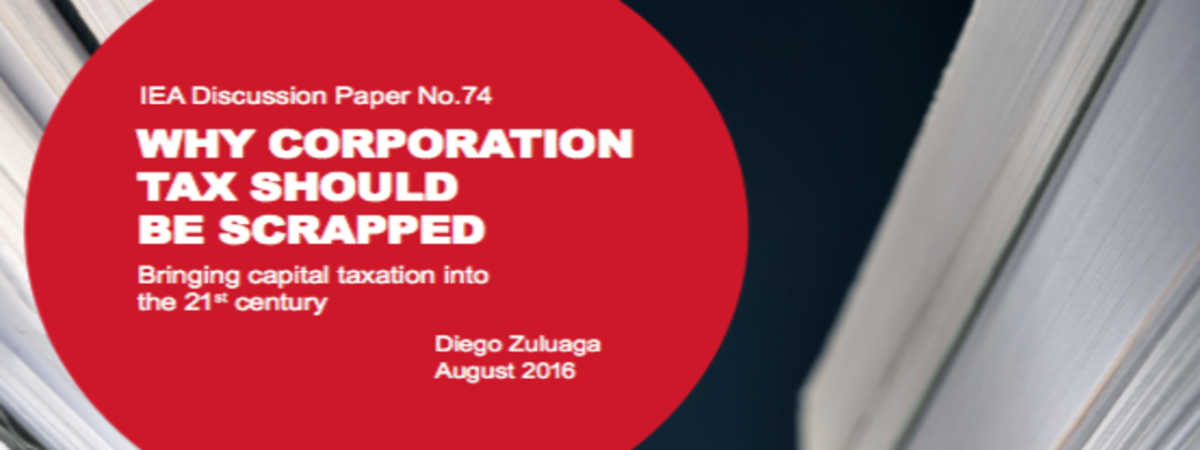Discrimination: don’t believe the media hype
SUGGESTED



These demands are justified by reference to claims that ‘pregnant women and mothers now face more discrimination at work than they did a decade ago. 11% of women reported being either dismissed, made compulsorily redundant when others in their workplace were not, or treated so poorly they felt they had to leave their job’.
The media have reacted predictably, with the Guardian repeating that the claims were ‘shocking’ and the BBC headlining ‘unacceptable discrimination’. So should the government act on the report? Being a new mum is undoubtedly tough. The experience of returning with radically changed personal priorities, to a workplace where all sorts of things will have moved on, new colleagues will have come in and so on, is inevitably problematic.
But we should be cautious in rushing in to condemn existing employment practices and demanding yet more employment regulation.
Currently female employees are entitled to 52 weeks’ maternity leave (two weeks of which are compulsory; four weeks if you work in a factory), with pay for 39 weeks, albeit at different rates as leave continues. This is one of the longest periods of leave entitlement in the OECD, although some countries allow longer extensions in some circumstances. During this period the mother remains an employee and retains entitlement to many of the benefits of employment, such as the accumulation of holiday leave. Her job must be kept open for her return: if the job disappears as a result of reorganisation in her absence, a job of similar standing and remuneration must be offered. Discrimination against pregnant women is clearly illegal and this is widely accepted in Britain.
The claim is made that discrimination has nevertheless increased. But this claim is based on comparison with a different study undertaken in 2005 at a different stage of the business cycle and with a different legal environment – leave arrangements for mothers and fathers were significantly improved under the Coalition. In any case the ‘evidence’ needs more careful specification. Of the 11% figure quoted, only 1% relates to those dismissed and another 1% to those made compulsorily redundant. The other 9% were ‘treated so poorly they felt they had to leave their job’. This latter category is vague. Many workers leaving jobs, males as well as females, non-parents as well as parents, cite such reasons. Less emphasis is given to findings that the vast majority of women, from 74% to 89% depending on the questions posed, reported that their employers were willingly supportive during and after pregnancy.
The Committee advocates German-style legislation which makes it very difficult to dismiss mothers, but this would only be likely to have a marginal impact on this 11% figure which the Committee makes much of, and which most of the media quoted without qualification. Incidentally, despite longer maternity leave and more generous maternity pay as well as greater employment protection, German women still change their career paths after childbirth and the gender pay gap is higher than in the UK. One study examined the effects of five major expansions in maternity leave coverage in Germany. Four out of five of these measures had only a small positive effect on women’s employment rates and incomes six years after childbirth, while one measure to extend maternity benefits beyond the period of job protection actually worsened women’s long-term labour market prospects. The authors concluded that overall ‘the reforms did not succeed in promoting employment continuity or in improving the position of women in the labour market after childbirth’. So Germany doesn’t have all the answers.
A problem with increasing employment protection for mothers is that it couldn’t reasonably be confined to them: there are other protected groups who would demand similar rights. Ditto with lower employment tribunal charges (incidentally another parliamentary committee is already investigating this issue). And the Committee’s antipathy towards zero-hours contracts adds further fuel to the demands from Jeremy Corbyn and others to ban them outright.
It may be that the Women and Equalities Committee have a very strong case, but it does require a closer examination than the media have given it. All employment legislation has costs as well as benefits and we need to be much more careful than we have been in the past in requiring ever more from employers – who in any case will pass on costs in one way or another, usually in large part to the ostensibly protected groups who will lose out in other ways.



